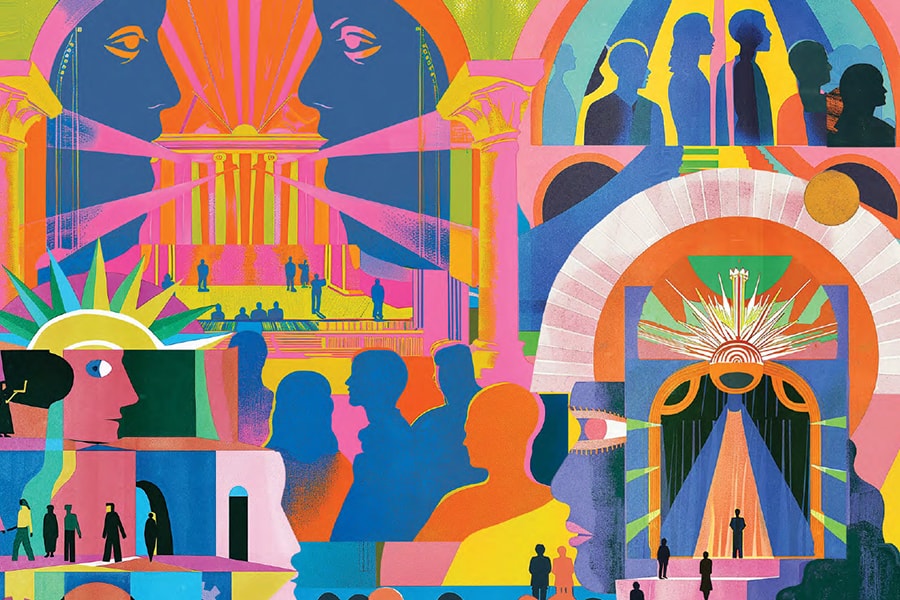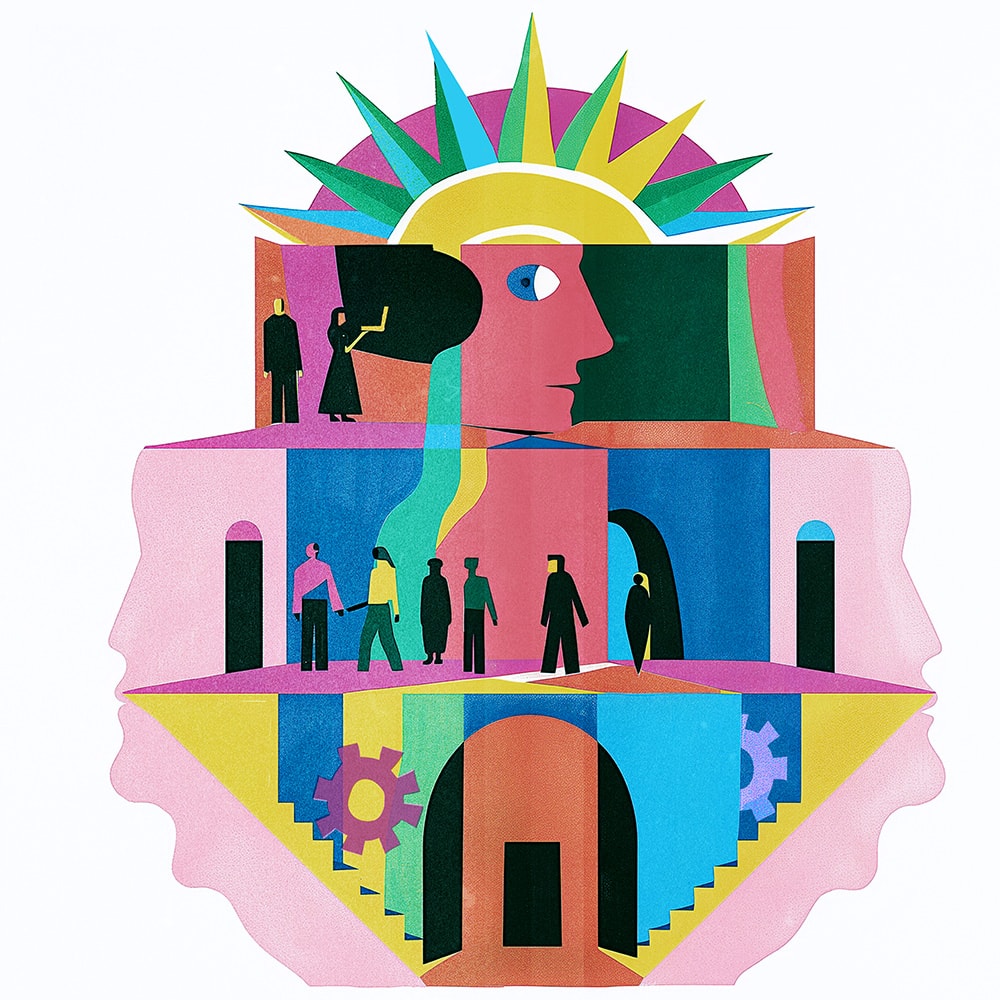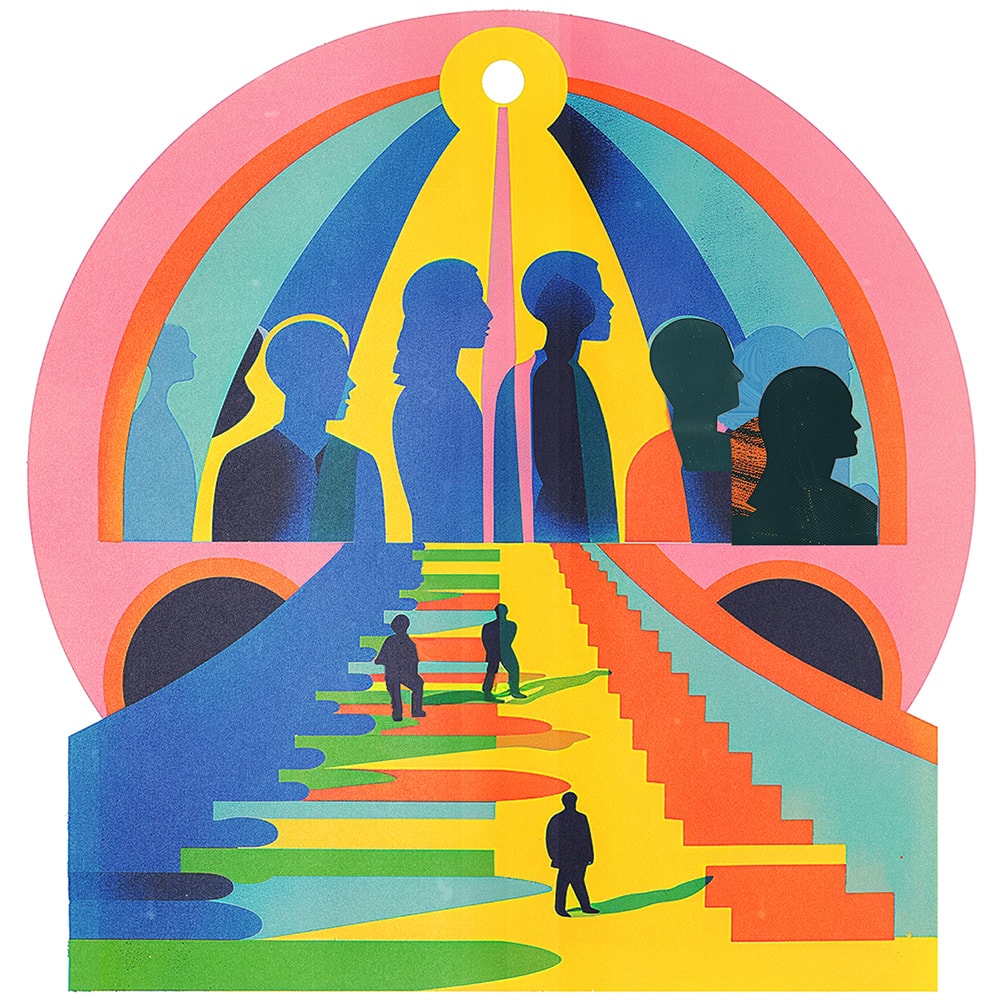Close your eyes and imagine your ideal theatremaking ecology. Who do you see? Where are stories being told? What does it smell, sound, and taste like? Now open your eyes. Can you translate your most hopeful imagination into reality?
American Theatre has asked 16 of the brightest minds in all areas of our industry to do a version of this thought experiment, and we will be publishing their work over the remainder of this year. The first four essays are in the summer 2024 print issue of the magazine, and the remaining 12, along with these four, will be published online.
We’ve asked contributors to consider four general topics: Business models and collaboration, looking at new or under-explored models for governance as well as for cross-arts and cross-sector alliances; economic justice and labor, focusing on theatre workers and the means to ensure access, equity, and better working conditions for all; content and form, with an emphasis on the runway for experimentation, risk-taking, and mentorship; and audience and impact, exploring ways to remove barriers, invest in accessibility, and use technology and journalism as bridges.
These questions are always worth asking, but they have fresh urgency now. The American theatre—and the nonprofit arts industrial complex in general—stands at a crossroads. As the ancient, perennial art form where all arts intersect, theatre has the potential to boldly lead the way into a hopeful future where equity is a reality and not an aspiration; where telling stories to, with, and about people from historically excluded communities isn’t a risk but a calling; and where love for our common humanity leads our decisions more than individual whims and ticket sales. This future may not be precedented, but it is absolutely possible.
We’ve read (and written some of) the seemingly endless articles about theatre closures, abuses of power, unsafe work conditions, and dwindling audiences. This is important work; information is power. But raising awareness of a problem is only the first step in fixing it. The next steps are much harder, requiring forgiveness, investigation, interrogation, authentic community building, and the willingness to wade into unknown waters. In change, even when it’s for the better, there is always an initial loss.
But the reward on the other side is much greater than art as product or as mere intellectual gymnastics. It looks like many healthy, sustainable pathways to a life of meaning and creativity. Just imagine that.
Kelundra Smith (she/her) is an Atlanta-based playwright, cultural critic, and the managing editor of American Theatre magazine.
RELATED CONTENT
Support American Theatre: a just and thriving theatre ecology begins with information for all. Please join us in this mission by joining TCG, which entitles you to copies of our quarterly print magazine and helps support a long legacy of quality nonprofit arts journalism.






